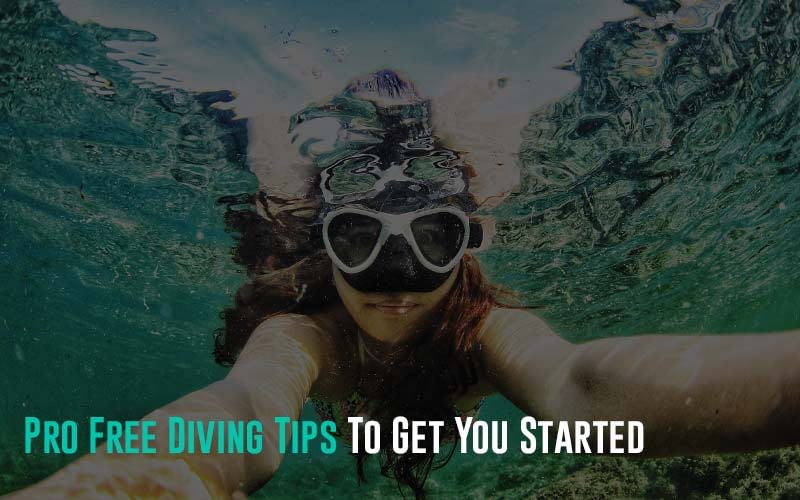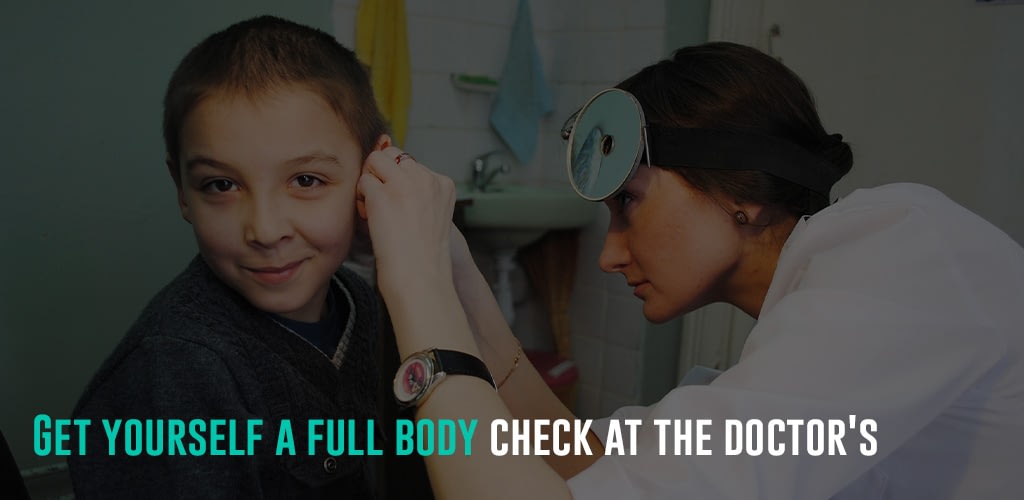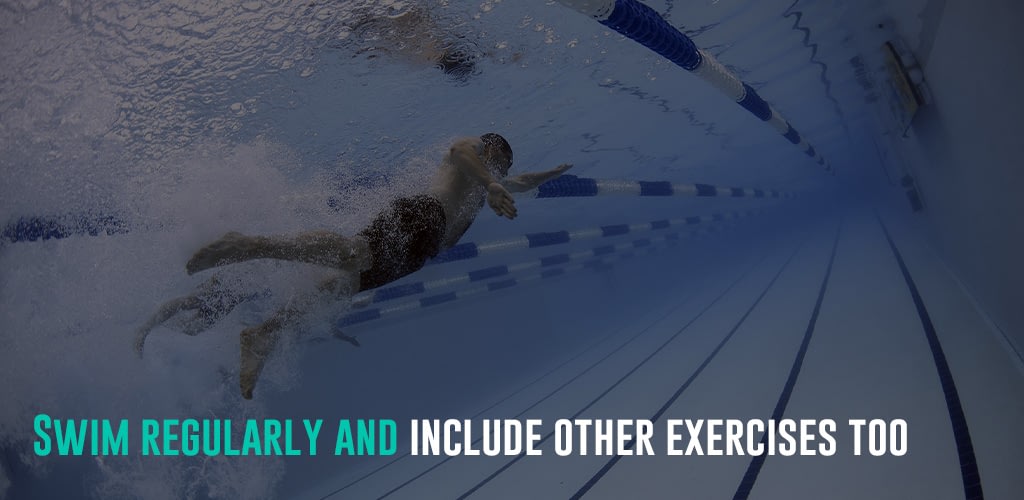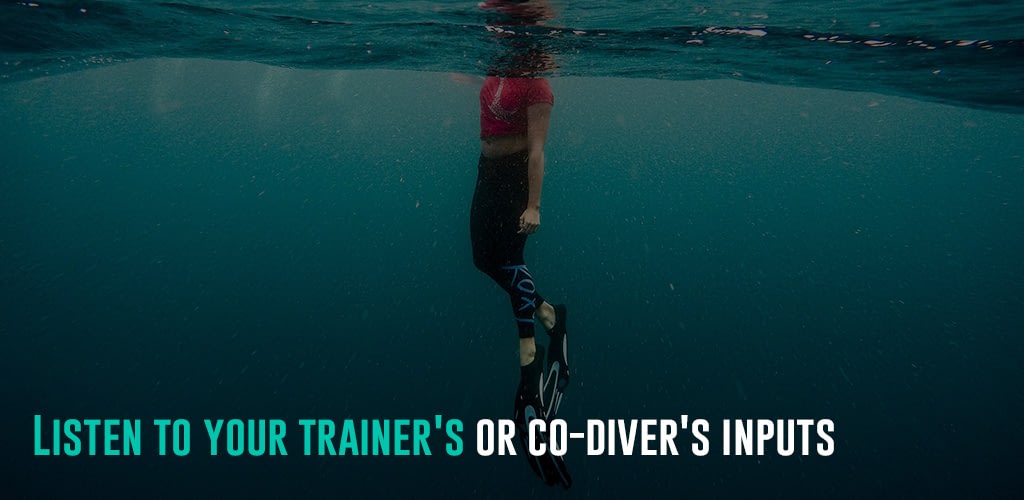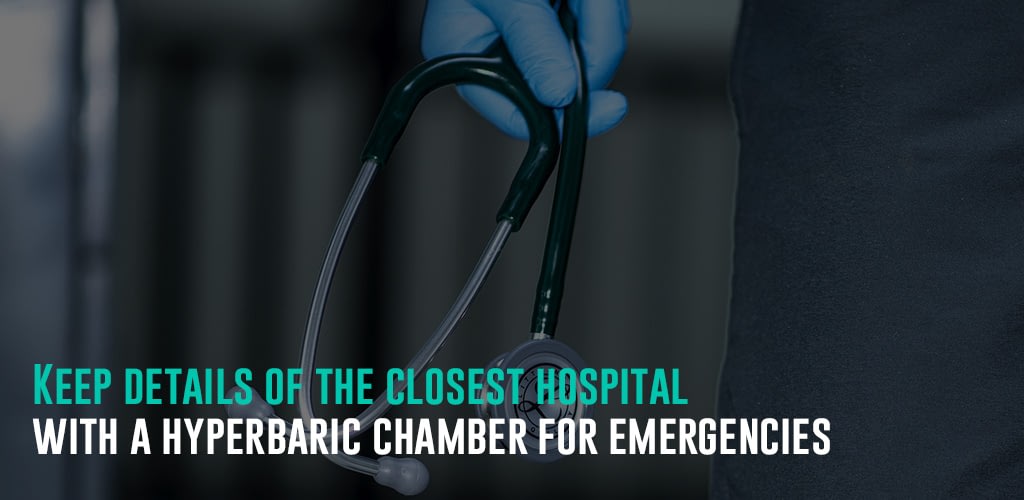Free diving is such an exciting adventure sport. To dive into deep water without a snorkel, let alone an oxygen cylinder can seem downright crazy to others. But for us adrenaline lovers, there’s nothing better than being one with the water. This way, we experience the dive as creatures of the water are meant to. So, let’s explore some free diving tips that will help you enjoy getting into free diving!
So, if you’re heading to your first diving experience – whether this is a class tutored by an expert or your first time alone in the water – these tips can be helpful after you identify your diving spot. By following this list carefully, you can have a safe and successful free diving experience, no matter where you dive.
Featured Image Credit
1. Get yourself a full body check at the doctor’s
First, it’s imperative to get yourself tested by a doctor to ensure you are eligible to go free diving. Getting a full-body workup done a week or two before the dive will ensure you have the latest medical details. You can use this information to consult a freediving instructor or provide the same to any authorities responsible for permitting divers.
2. Swim regularly and include other exercises too
Free diving takes excellent skill, the primary one being swimming. It would help if you swam back up. Swim daily and try doing deeper dives or covering larger pool areas underwater. This will simulate the underwater experiences that you’ll face when you’re free diving.
Along with swimming, you must include lots of strength training to strengthen your muscles. Your body needs to be vital to withstand the immense water pressure you’ll experience as you swim deeper underwater. Similarly, you don’t want to cramp mid-dive, and you need to be able to change your body position quickly during the dive. This is where flexibility training, such as yoga, becomes imperative.
3. Get better at relaxed breathing
Since you don’t use any oxygen equipment during the dive, it’s essential to ensure you are breathing correctly. First, being calm and relaxed underwater under high pressure is essential. Knowing how to consciously relax and control your breaths can help conserve precious oxygen when you’re in the deep.
When practicing breathing techniques, starting your practice on land is imperative. First, do dry breath-holds to understand how the technique may feel when implemented. Next, go to a local pool and try these techniques in shallow water. Finally, practice these simple breathing techniques in deeper waters only when you’ve got the basics down.
The Frenzel technique is one of the most critical breathing techniques recommended by professional, free divers and instructors. It will allow you to quickly equalize the pressure in your ears as you dive deeper and deeper downwards.
4. Buy the right free diving gear
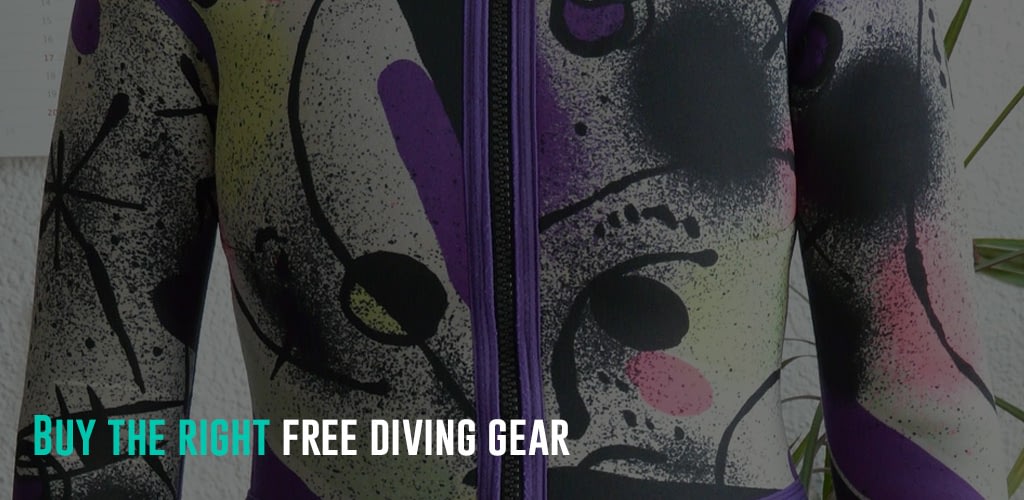
You’re almost ready to get in the water once you have started practicing your breath-holds and equitization techniques. You must ensure you have the right dress and gear at this stage.
If you’re brand new to free diving, having a snorkel on you for the initial few dives is best. That way, you can safely get the air you need mid-dive. Other items include a freediving mask, a pair of fins, a weight system (for buoyancy), and a smartwatch with free diving metrics features. You’ll also need a wetsuit. Consider the water temperature you will be diving in and the depth you’ll be heading to. It would be best to consider how easily you fall in due to frequent exposure to water and the level of wear & tear your suit will experience.
After you have the gear you need, practice diving with the gear in your local swimming pool first. Never use your brand-new clothes and gear for the first time in the middle of the sea/ocean.
5. Avoid caffeinated drinks, alcohol, and greasy foods before freediving
Before and on the day of the dive, avoid drinking alcohol and caffeinated drinks. Skip the oily, greasy, and heavy foods. You should also avoid foods or drinks that can make you bloat, feel heavy, nauseous, or hypervigilant. Intense carb-loading isn’t mandatory, but it does help. But don’t eat too many carbs the day before the dive. The rule of thumb is to shed 500 calories of food from your meal the day before the dive. A small portion of low-fat and light food is ideal on dive day. Include fruits, vegetables, and nuts in your diet too.
Most importantly, drink water. You lose a lot of water during the dive and should constantly hydrate for days before the free diving.
After the free diving experience, get back to high-carb foods. You burn many calories during the dive, which is why many freedivers lose weight and muscle so quickly. It would be best if you regained this muscle with a high-carb diet.
6. Sleep properly before freediving
A night’s sound sleep can distinguish between a successful free dive and an unsuccessful one. You should get 6-8 hours of sleep the night before the dive. In addition, you can practice your relaxed breathing techniques before going to bed. The breathing techniques will help relax the muscles and help you get better quality sleep.
7. Listen to your trainer’s or co-diver’s inputs
It’s always important to never go on a free dive alone. Go with your trainer, or have a fellow free diver accompany you. Sometimes, it can be difficult to judge what’s happening with the water, the waves, the wind pressure, temperature, any gear, and local wildlife when we’re in the water. So, it’s essential to ask your partner to keep an eye on everything and ask them to let you know if anything changes. You must pay attention to what they say to have a safe dive.
8. Keep details of the closest hospital with a hyperbaric chamber for emergencies
With proper preparation and practice, your dive will be safe and seamless. But it’s important to know that things can sometimes go wrong when free diving. Having the name and contact details of the nearest hospital – preferably one with a hyperbaric chamber – can be very important. These details can be a lifesaver if you feel unwell after the dive or experience hearing loss, breathing problems, or dizziness.
With these tips in mind, you’ll be able to understand free diving better and begin thinking about planning your next trip. It’s important to research the area you plan on traveling to know what is available for free diving. Also, be sure to reach out to our community of travelers for any more tips or questions you might have about free diving.

